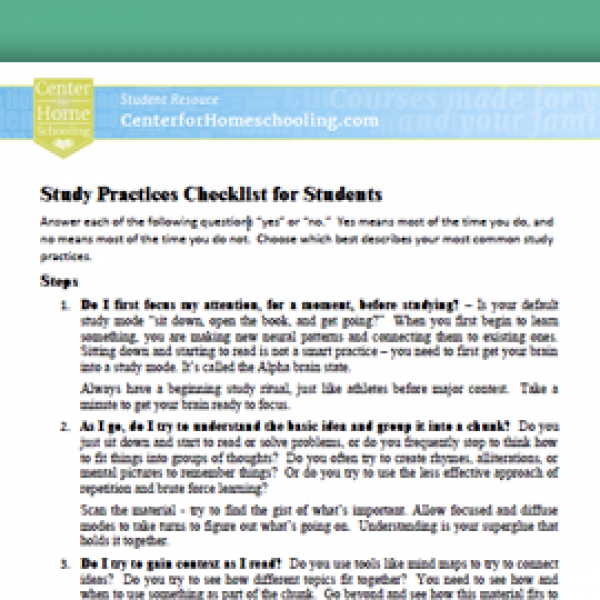
How to Recover from an Epic Fail
The term “epic fail” is used to describe a significant and public failure. It has become a popular term on the internet and the use of the word “fail” as a substitute for “failure” is an interesting twist that provides a new meaning to this.
Examined further, it is an event where you have experienced a significant setback in something:
- a) that was of great importance to you and therefore you feel personally hurt by this setback,
- b) you had a heavy personal investment in time, ego and energy, and as a result, part of you feels lost or hurt,
- c) you had high expectations of success but were surprised or shocked by a bad outcome or a lack of achieving results.
What’s the best way to deal with an Epic Fail? Here’s an eight-step process that you can apply to turn a bad situation into a positive one. Follow these steps to turn something bad into something great.
1. Seek Acceptance
First, you need to allow yourself time to get over the initial shock. Take time to process your feelings, don’t repress them. How do you really feel? Why? Don’t skip this, buried feeling can linger a long time. Bring them to the surface.
Mulling the negatives and hurt feelings around in your mind is a natural step; it’s part of the personal mourning for something you have lost. But when you do this, always avoid negative self-criticism and labeling. Telling yourself that you are “stupid,” or feeling like you are a “loser” will not put you on the path to healing.
Be real with the situation you have been given. Life will deliver inevitable setbacks to all of us. Right now, it’s your turn.
Remind yourself that feeling bad shows you are human. Tell yourself this is the first step of a process that you will go through. Acceptance is the start of the recovery process.
2. Take Ownership
Now you are ready to work your recovery process. This begins by deciding you will take responsibility for your life.
Don’t blame others for your own failure. Did your coach fail to teach you something? That’s lame – don’t blame the coach. Was the test unfair or too hard? Blaming the test won’t fix your problem. Did you lose the tournament or big match because you choked or had a bad day? Blaming bad luck is a formula for losers.
Healing begins by accepting responsibility for the failure. This will start to restore your sense of self-control. Factually describe what you did and did not do. At first, this can be difficult, but recognize that labeling actions and behaviors that did or did not occur will start to transfer unproductive blaming into the more manageable realm of things you can control.
Know that it’s not about you as a person. It’s about understanding prior events.
Did you miss some things that you should have paid attention to? Did you not practice enough, or perhaps did your training regimen focus on the wrong things?
Be internally consistent – if you want to take full credit when you win, then you have to take responsibility when you lose.
Specifically state to yourself what you take responsibility for. Emphasize the things that you can control, and leave the other stuff alone. Learn to live with it. Practice resilience.
3. Forgive Yourself
This is an important early step. We know the ability to forgive others for their transgressions is a powerful force for moving forward. In the same way, practice the ability to forgive yourself – it’s equally powerful.
It’s also being fair to you. No one should expect perfection of themselves. Don’t fall into that trap.
Forgiving yourself for making mistakes can clear your head of clutter and self-limiting feelings. Negative internal self-talk will not help you recover, it can leave a person stuck in a bad place.
Practice the useful concept of “metacognition” – which is your own “thinking about your thinking.” Discover why you are feeling so bad or why losing a game is so deeply hurtful. It’s natural to want to suppress hurtful thoughts, knowing and labeling them is therapeutic. Uncover your own thoughts, and the mental frameworks you have created that guide these. For example, ask “Who told me that I had to be perfect?”
Forgiveness allows you to move forward.
4. Find Your Silver Lining
In almost every failed effort there are positives – so dig deep to find them. Yes, this is common advice, but you need to be realistic that not everything is bad. What are the good things – big and small here? What parts were rewarding?
This is key – it’s important to take pride in the fact that you tried something hard. The hard effort you put into training and learning can most likely be useful to preparing you for other things.
Not everyone is willing to test themselves like you. The winners in the game of life are the ones who try hard things – the ones who are willing to risk it because of the rewards. The real losers are the people who avoid trying hard things.
Pat yourself on the back that you stepped up to the plate and you tried. Recognize that this fail is the price you are paying for pushing yourself to another level. People who are lifelong learners continually do this – and often fail. That’s how it works.
Remind yourself of the old saying – nothing ventured, nothing gained. It’s true.
5. Understand and Learn
This step will be the most important for you. We learn our most valuable lessons from our failures.
You need to be an adult and take control of your own learning. Only you can do this for you. This is where your real payoff begins. It’s useful to stand back from your situation and imagine you are a third-party observer of what unfolded. From this perspective, consider these penetrating questions and write down your answers:
1. What really happened here? What did this person not know, or not understand? Lay it out in detail as you see it unfold.
2. What did this person assume that turned out not to be true? Was there a way he or she could have tested these before the event?
3. What did this person do that didn’t work? (be specific here) What does this say about the gaps in her learning and preparation?
4. Examine the training regimen if this was an expert performance problem, like sports. What was done well in training they did not work? Why? Were there things this person thought he knew but didn’t – why was there an “illusion of learning?” Were the right learning strategies applied, like deliberate practice and interleaving?
5. What worked or went well? What needs to be held on to for success the next time?
6. What help could this person have gotten from others? From whom? When?
Put your answers into writing, or into a journal. Journaling your thoughts and the lessons you have learned is a helpful practice to healing and understanding. It can also improve your analytical thinking
How much time should you spend on this?
Since you identified this as an epic fail, you want to invest enough time to gaining a full understanding of what happened. Don’t rush to a superficial conclusion. Understand your feelings and the source of these. Clearly state and summarize the lessons you learned in writing. Review them at several sittings.
6. It’s Decision Time
This is the final step where you apply your lessons. You have taken ownership, forgiven yourself, identified the causes of your fail, cleared your mind of negative feelings, and you have identified the useful lessons.
Now you are ready for the big question:
Am I able to summon the emotional strength to move forward and try again?
This may require you to look deep into yourself. What are my goals – what do I really want? What do I value? Why is this important to me?
If your answer is no, then make the decision to end that goal. Let it go. Find something else that really gets you motivated.
However, if your answer is yes, then recommit yourself to do whatever it takes to achieve success.
Einstein said the definition of insanity is doing the same thing over again, and somehow expecting a different result. Take a sane approach to your situation and ask yourself the recovery question:
What will on do differently this time?
Write down the specific new behaviors that you will need to commit yourself to do this time forward.
7. Create a New Plan.
Demonstrate your commitment by completing a plan to move forward. Gather together everything you’ve learned from the epic fail, and now create a plan of action that will lead you toward your goal. If you’ve truly recommitted yourself, creating this plan will get you energized and excited.
Are you really “all in?” Check to see if you are really being honest with yourself. If you have butterflies, revisit step 6.
Now that you’ve drafted your plan, run it by somebody whom you trust and who has experience achieving this kind of goal. For example, if you are trying to recover from a failed course, share you plan with someone who has taken the course successfully. If your fail was a sporting event, talk with someone who is good at that sport.
Use this information to improve and validate your thinking.
8. Get Started
The most important thing is to get started and do it right now. Take immediate action to create momentum. Feel the strength and sense of self-confidence that comes from managing your epic fail, and use that energy to drive you forward.






